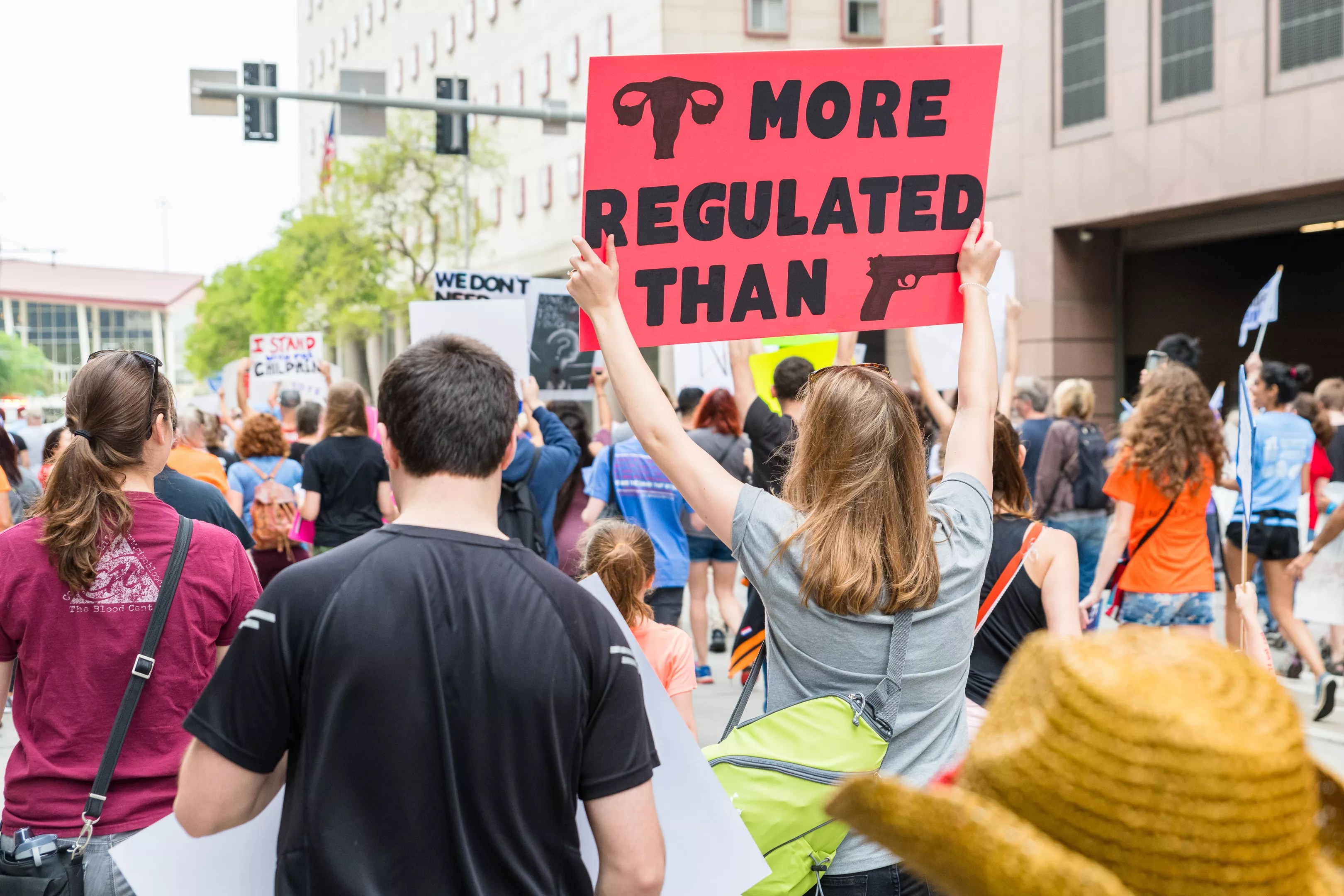
Adobe Stock.

Audio By Carbonatix
As if being a woman wasn’t already hard enough, a study ranked Texas as the fifth worst state in the country for women.
That much shouldn’t be surprising, should it? Women are underrepresented in the Texas government, the state is a leader in restricting abortion access, and there are high rates of unemployment rates and poverty for women in Texas.
“Despite improvements the U.S. has made over the years, women still lag behind men when it comes to economic prospects, executive positions and political representation,” said Milvionne Chery Copeland, an analyst in the study.
The study from WalletHub analyzed the conditions of women in each state across 25 measures, including job security, high school graduation rates, voter turnout, abortion access and suicide rates, among others. The study assigned each metric a weight and ranked each state, with the first being the best, and the last being the worst. Mississippi came in as the worst overall state for women, while Massachusetts finished as the best state for women in the study.
Texas ranked in the middle for education, ranking 20th on the list of high school graduation rates for women. But the state has one of the highest graduation rates in the country, a frequent boasting point for Gov. Greg Abbott, yet when the graduation rate is divided by gender, the sharp drop in the rate for women raises a red flag.
Texas was the first state to successfully pass a fetal “heartbeat bill,” placing the most stringent restrictions on abortion access in the country. Also, the state has more uninsured women than any other and ranks in the bottom 10 for preventive care, according to the report.
“Fourteen states in the U.S. now have total bans on abortions, and most of these do not even provide an exception for rape,” said Ozlem Altiok, a professor of women’s and gender studies at the University of North Texas said to WalletHub. “An additional 13 states have very restrictive abortion laws. That makes 27 states – more than half of the states. Abortion bans in these states will result in more women dying in these states. It is chilling.”
In the Lone Star State, women make up the larger share of people living below the poverty line. Texas has one of the largest wage gaps in the country as well, with women making roughly 25% less than men on average. Women, especially mothers, have higher costs of living, which doesn’t pair well with the lower pay. The higher costs of prenatal and postpartum care, childcare and gender-based pricing for goods in conjunction with lower salaries puts women at higher risk for poverty.
“In short, states should respect all women’s lives, their bodily autonomy, and right to live,” said Altiok. “These are basic minimums. They should protect women’s right to healthcare, including reproductive rights and justice, including abortion. They should develop quality publicly provided or affordable childcare options for all, protect and expand workers’ rights, including their right to form unions.”